Google sets billing option deadline; Flipkart head of new biz Adarsh Menon quits
Also in this letter:
■ ONDC not close to shaking up online food-delivery industry: report
■ Rs 17,000 crore PLI for IT gets Centre’s nod
■ Indian govt working on AI regulations
Deploy one of three billing options within two weeks: Google tells app developers
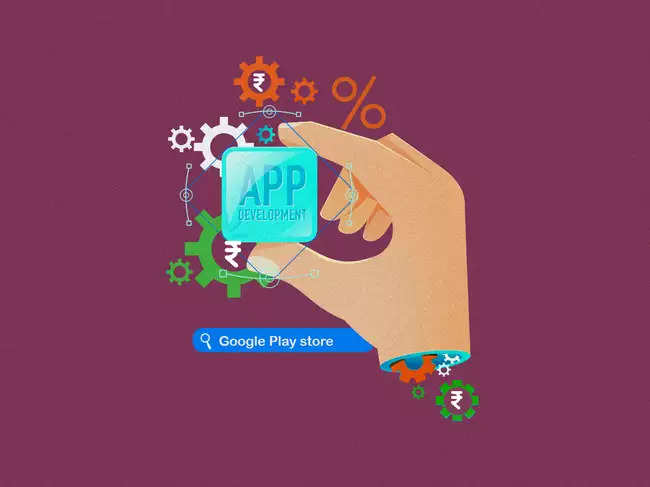
Threatening enforcement action and even removal of apps from the Play Store, tech giant Google said on Wednesday it has asked Indian app developers to start implementing one of three billing options available for in-app purchases.
Google’s stance: In a blog post, Google said the three billing options available will be: the Google Play Billing System (GPBS), the user-choice billing (UCB) system, and the consumption-only system.
“Our service fees only apply when developers sell digital goods or services in their app. Today, only 3% of developers in India sell digital goods or services and therefore would need to pay a service fee,” Google said in a blog post.
A brief timeline: Initially, Google proposed GPBS as the sole in-app purchase billing option, but the Competition Commission of India (CCI), in its October 2022 order said it could not mandate developers use the system, which charged a 15-30% commission.
Following this, Google brought in the UCB system, under which developers could provide users with alternative payment options such as card payments, wallets, etc. in addition to Google’s system, and payments through these modes would attract a commission in the range of 11-26%.
Catch up quick: This comes when Indian startups represented by the Alliance of Digital India Foundation (ADIF) have filed complaints with the competition regulator over Google’s UCB system.
The CCI is currently hearing the complaints and ordered an inquiry into Google’s implementation of the new billing system last week.
Flipkart head of new biz Adarsh Menon quits, group CEO Krishnamurthy rejigs team
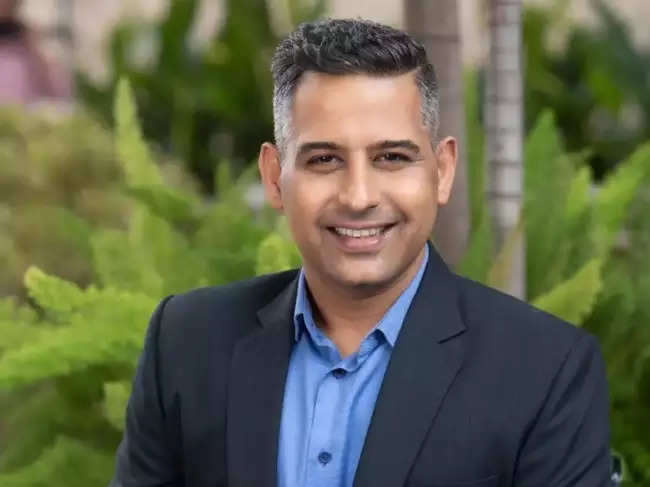
Adarsh Menon, a senior vice president at Flipkart and head of its new verticals like Cleartrip, Shopsy and the recommerce business, is leaving the firm to start his own venture, sources aware of the matter said.
Driving the news: Menon was made head of Flipkart’s new businesses last year in July when another senior executive Prakash Sikaria was finalising his plans to leave the ecommerce major.
Rejig ahead: Flipkart group CEO Kalyan Krishnamurthy has been adding new business verticals like social commerce (Shopsy), epharamcy (Flipkart Health Plus)over the last two years. In a note to employees, Krishnamurthy said on Wednesday that with Menon’s exit, the company will “restructure his portfolio under different leaders to provide a specific focus”.
Who gets what: Cleartrip org will move under Ajay Veer Yadav, another senior executive at Flipkart. Flipkart’s social commerce business Shopsy will now be headed by Flipkart veteran Amitesh Jha. Kapil Thirani, heading Shopsy, will report to Jha while Cleartrip CEO Aiyyapan R will report to Yadav.
Prakash Sikaria to build in-house credit startup: Flipkart’s senior vice-president Prakash Sikaria, who was slated to leave the ecommerce firm to float a startup, is staying back and will set up a new business venture within the group, multiple people aware of the development said. The new business by Sikaria within Flipkart will focus on building a credit marketplace, they told ET.
ONDC not close to shaking up online food-delivery industry: report
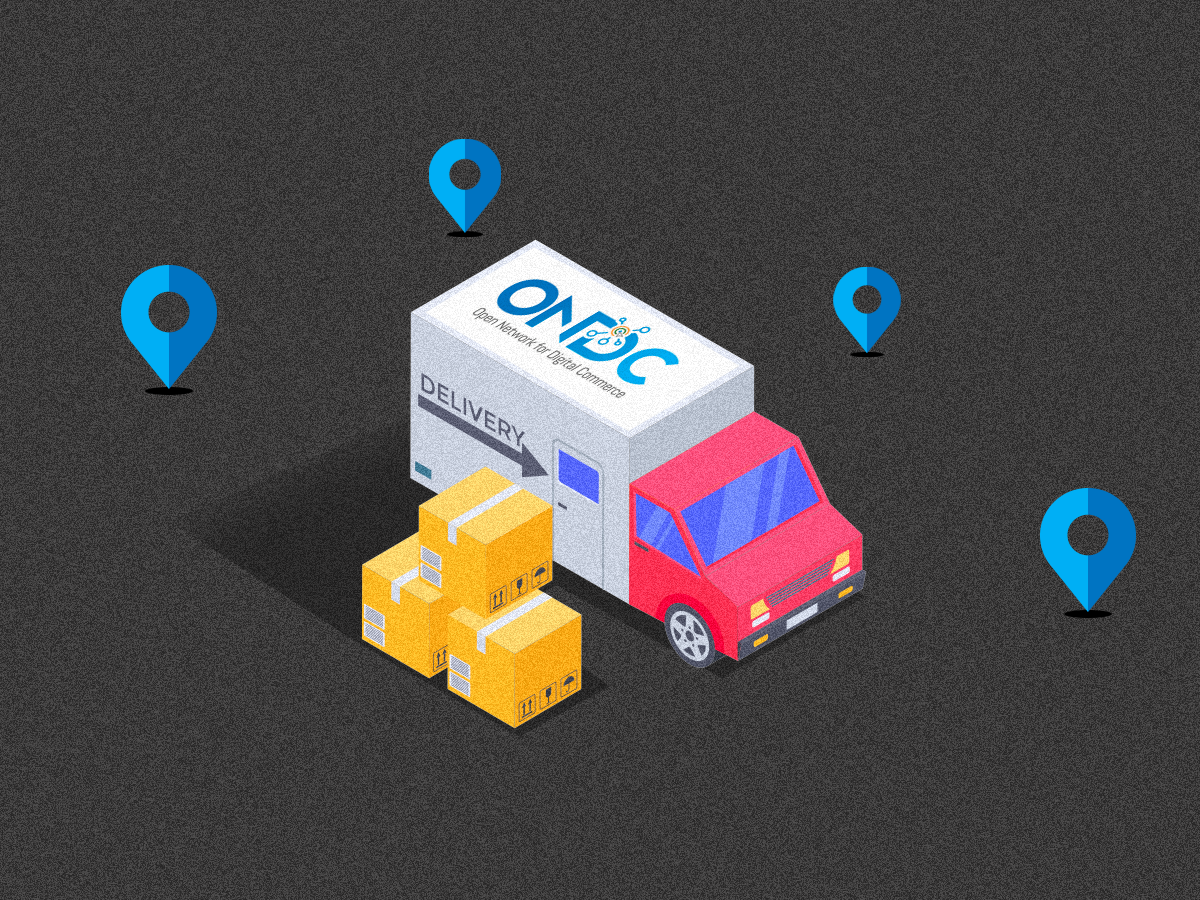
The government’s Open Network for Digital Commerce (ONDC) will not be able to shake up the online food tech industry through its high commissions, financial services company JM Financials said in a research note, a week after brokerage Jefferies had made a similar assessment.
Driving the news: The online food delivery industry will continue to be dominated by Zomato and SoftBank-backed Swiggy for now, JM Financials indicated in its report, noting ONDC had a ways to go.
“In fact, comparisons are being made with UPI, which had disrupted the digital wallet payments ecosystem in the past. We, however, strongly disagree with many of these assertions,” the report noted.
Also read |ONDC benefits may not be enough to offset Zomato, Swiggy scale: Jefferies
The commission game: It said the current commissions charged by ONDC’s participants are not sustainable. The seller-side apps like Mystore, eSamudaay and ITC Store currently charge about 7% commission for discovery and 22% commission when the delivery charge is added.
The seller-side apps may have to pay a commission to the buyer-side apps like Paytm, Meesho and Magicpin, which is about 3%, and ONDC, both of which have not started collecting such commissions.
“We, therefore, believe current commission rates are grossly subsidised. This means commission rates on ONDC have the potential to go up to 10-16%,” JM Financial said.
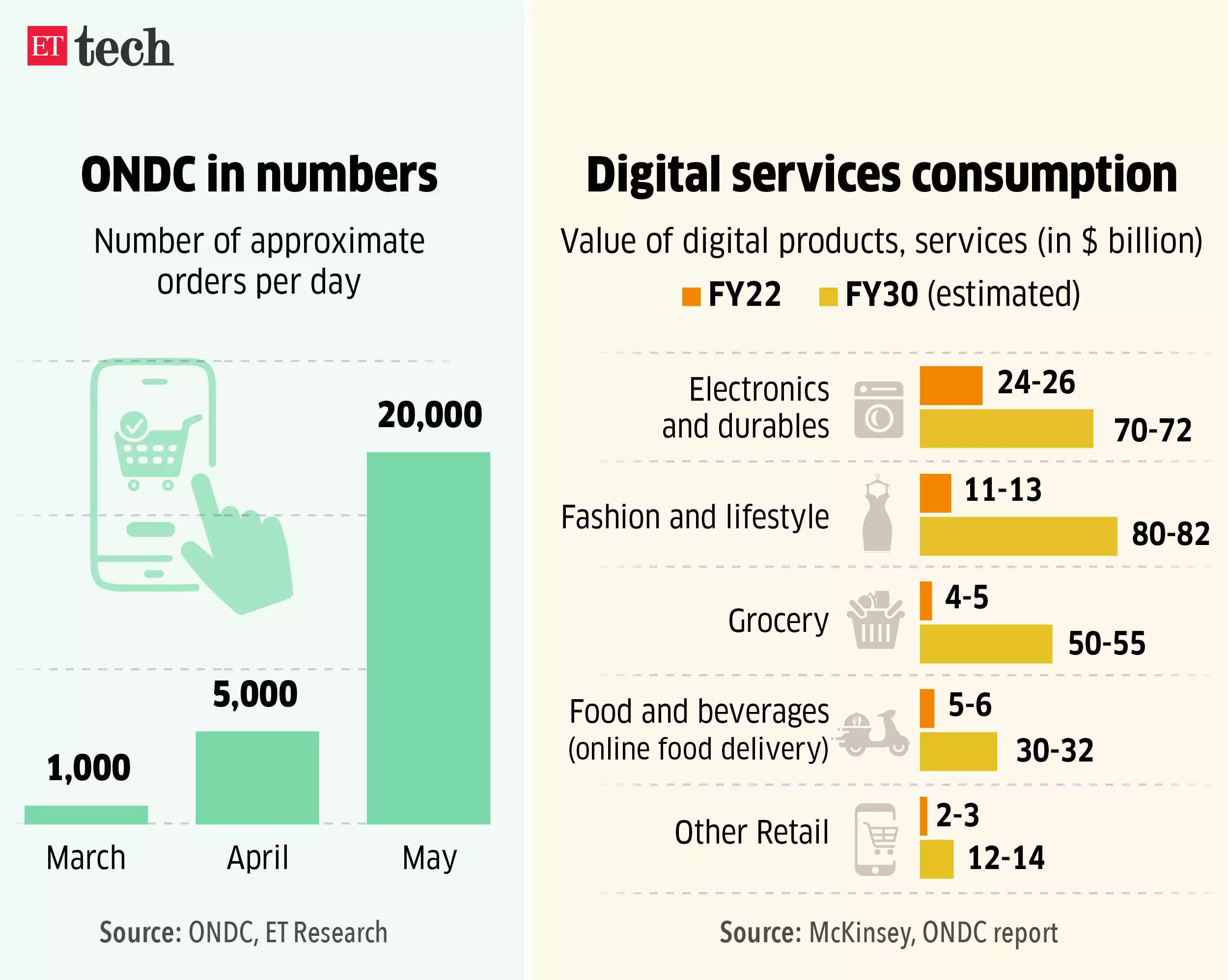
ONDC roadblocks: ET reported on May 9 that of the total orders that are serviced on ONDC’s network, around 97-98% are food and grocery orders. However, ONDC is yet to show any significant traction for ecommerce orders. ET again reported on May 10 there are multiple snags affecting the platform’s ability to take on ecommerce giants such as Amazon and Walmart-backed Flipkart.
Also read | Explained: ONDC vs Zomato-Swiggy and what it means for the food-delivery space
Cabinet approves Rs 17,000 crore IT Hardware PLI
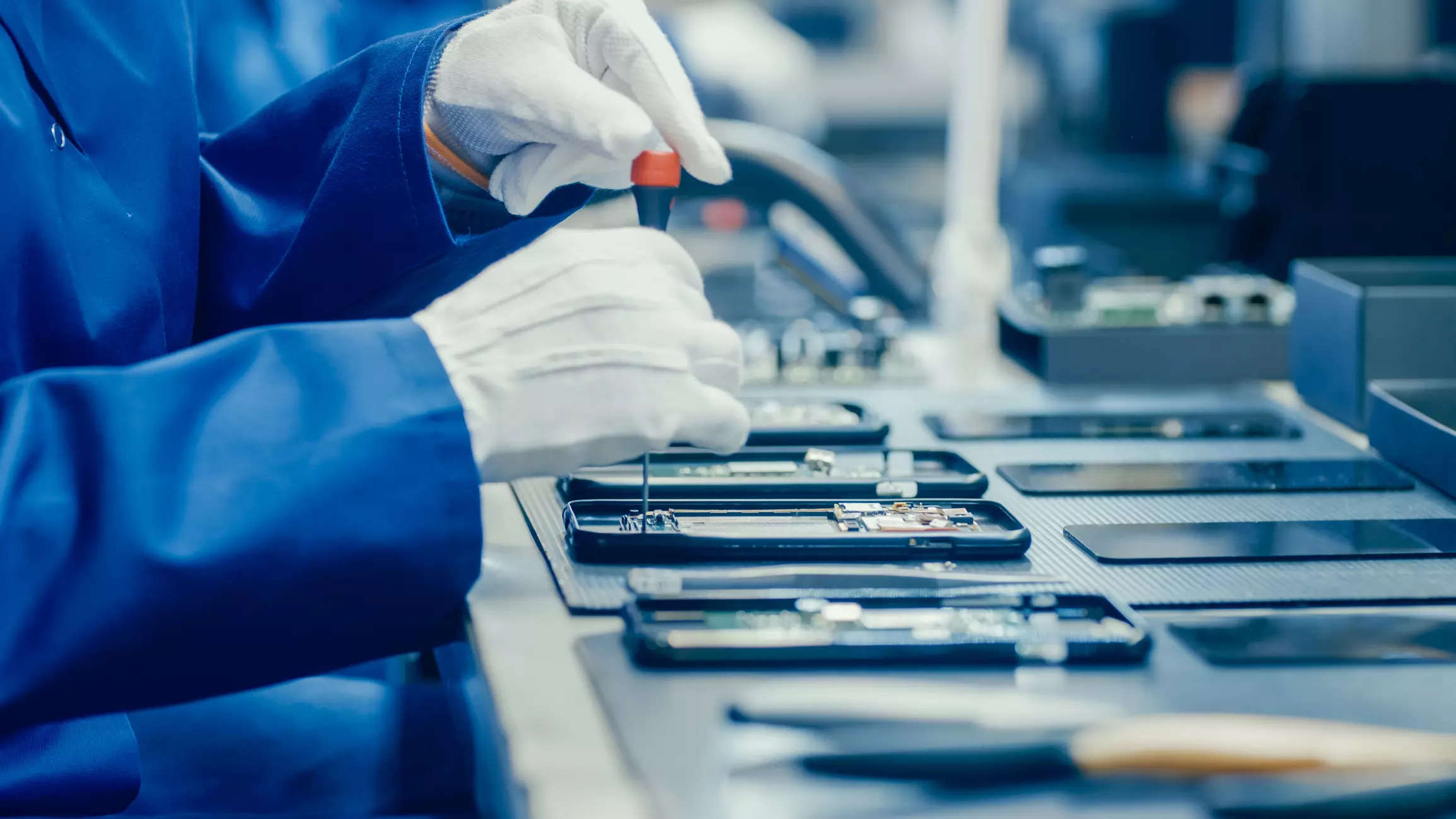
The Union Cabinet on Wednesday approved the Rs 17,000 crore Production Linked Incentive (PLI) Scheme for the IT hardware segment, according to union minister Ashwini Vaishnav.
Key numbers: ET had first reported on May 9 that the PLI scheme for IT hardware, which covers laptops, tablets, all-in-one PCs, servers, and ultra-small form factor (USFF) desktops, will have an outlay of Rs 17,000 crore, up from Rs 7,350 crore in the ongoing scheme
Vaishnav said that the scheme is expected to lead to incremental production of Rs 3.35 lakh crore, incremental investment of Rs 2,430 crore and create direct employment for 75,000 people during the scheme period.
More on this: The government had in February 2021 approved the PLI scheme for IT hardware, covering the production of laptops, tablets, All-in-One PCs, and servers with an outlay of Rs 7,350 crore.
Tweet of the day
Government looking to regulate AI, says Ashwini Vaishnaw
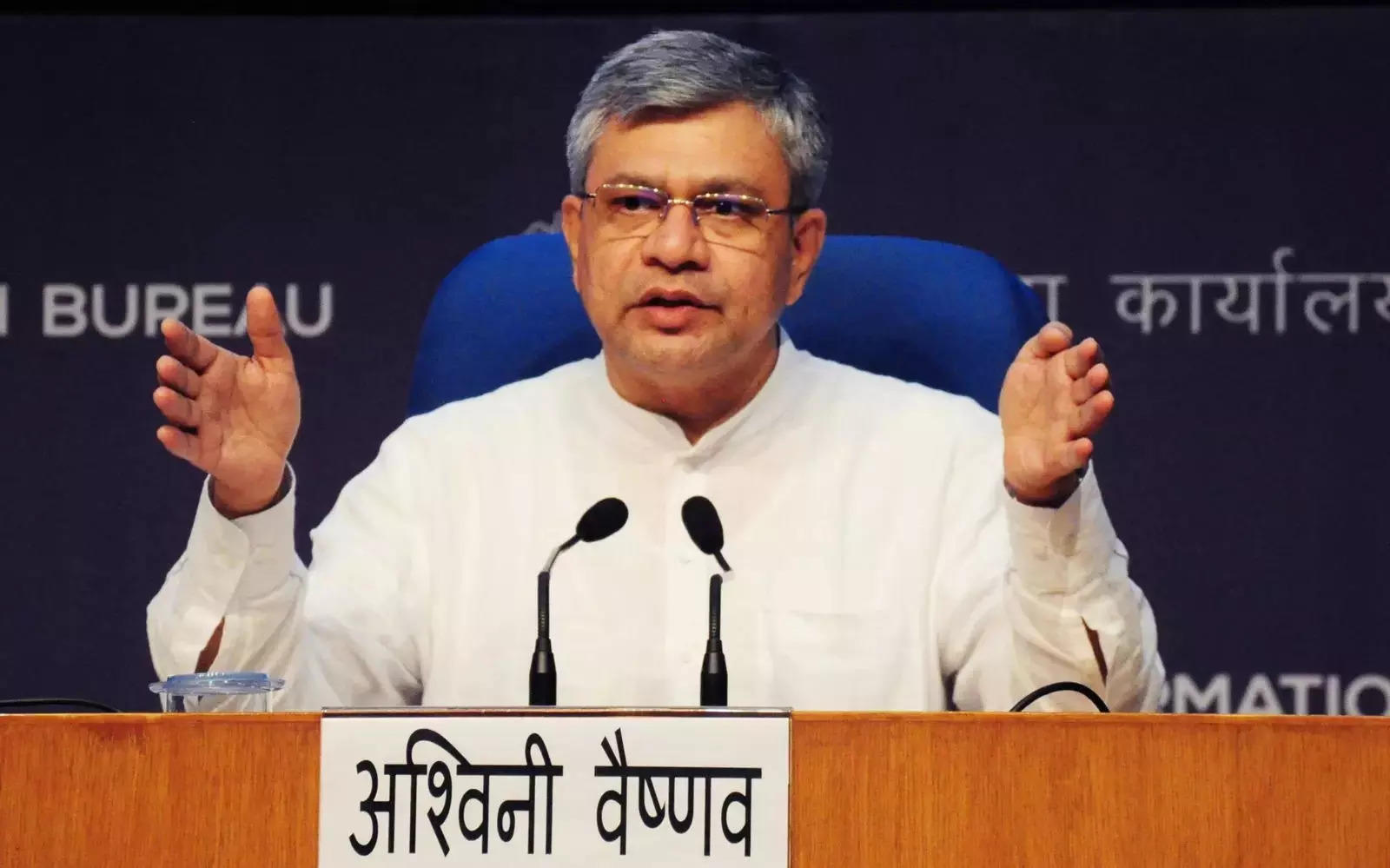
The government said it is considering a regulatory framework for artificial intelligence-powered smart tech platforms, such as ChatGPT, including in areas related to bias of algorithms and copyrights.
Quote unquote: “The whole world is looking at what should be the framework, and what should be the regulatory setup. In G7, all digital ministers (of G7 countries) are seriously concerned about what should be the regulatory framework. So, this is a global thing. This is not one country’s issue. This has to be looked at from the international perspective,” Vaishnaw said.
Also read | OpenAI chief Sam Altman concerned about AI being used to compromise elections
Tesla’s ChatGPT moment: Meanwhile, Tesla CEO Elon Musk said that the electric car maker would soon have its “ChatGPT sort of moment” no later than next year. Musk said that Tesla’s AI capabilities are better than those of other firms such as Microsoft and Alphabet.
In an interaction with CNBC, Musk said, “Tesla has tremendous capability in the real world. It is far ahead of anyone (other companies).”
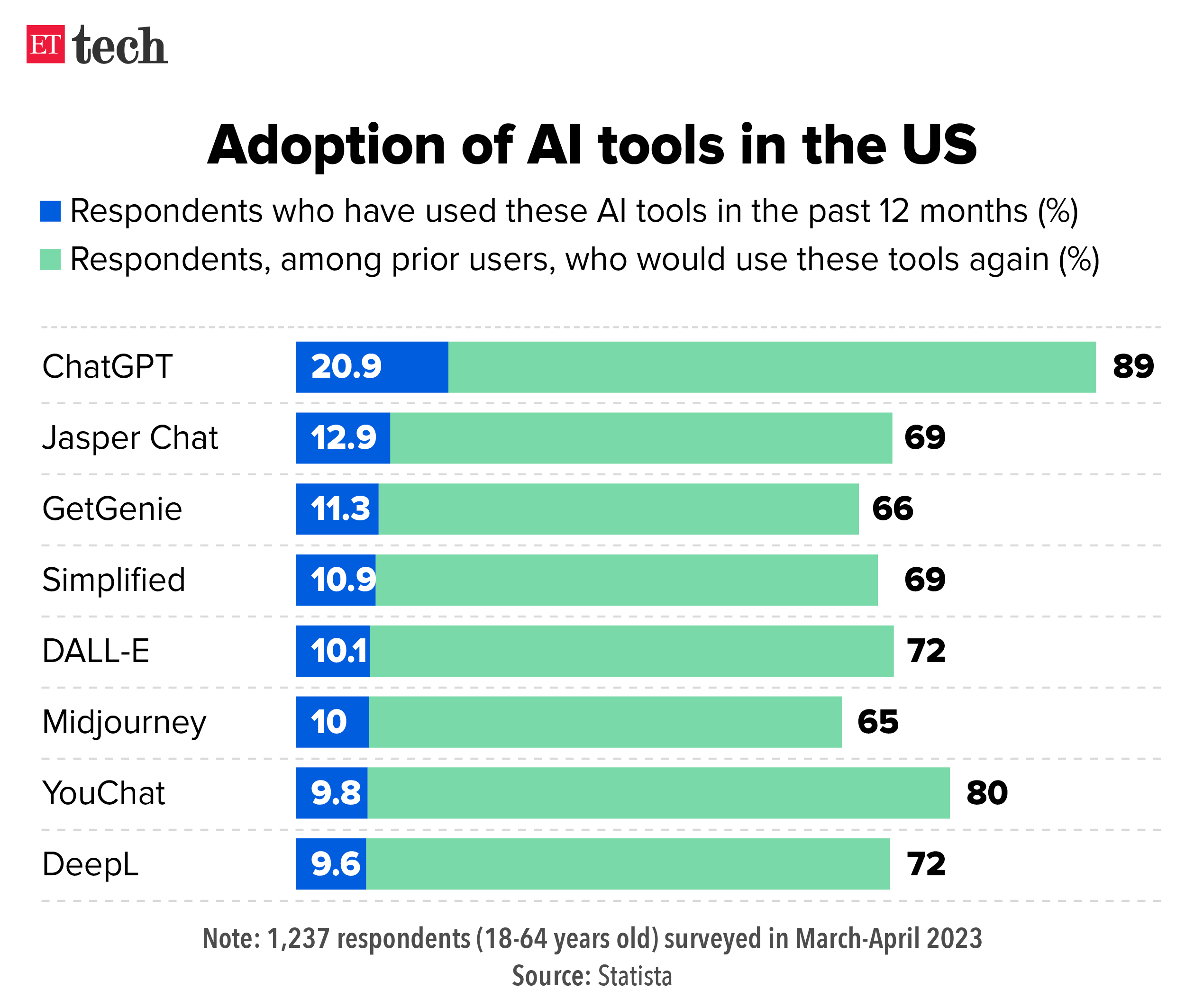
Today’s ETtech Top 5 newsletter was curated by Megha Mishra in Mumbai and Gaurab Dasgupta in New Delhi. Graphics and illustrations by Rahul Awasthi.
For all the latest Technology News Click Here

